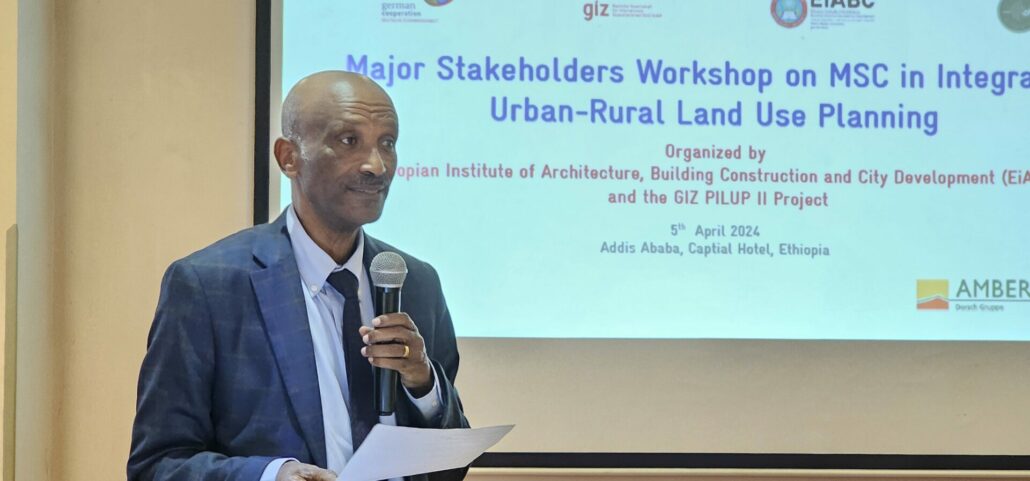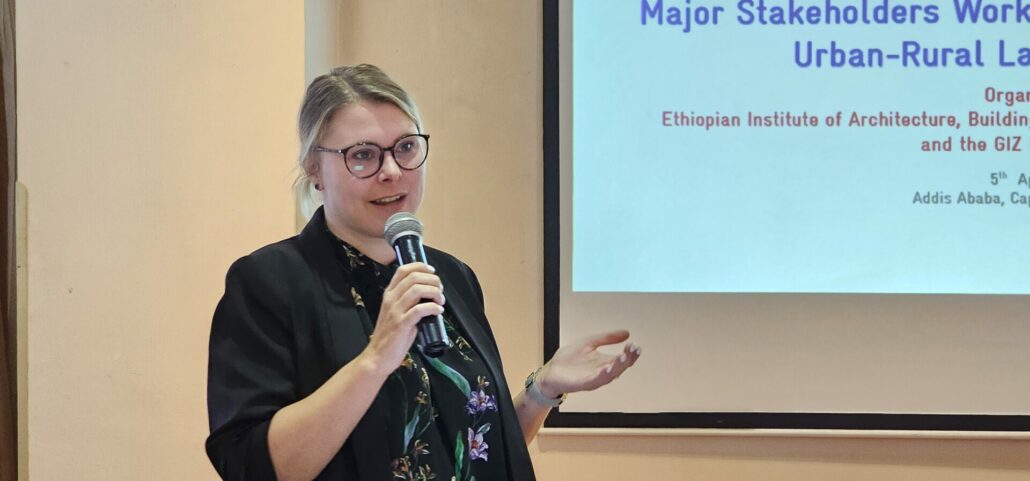University to open Masters Programme on Integrated Urban Rural Land Use Planning
About 78% of Ethiopia’s population lives in rural areas. However, this share is declining rapidly, with an annual growth rate of urban settlements of 47%. Since 2022 AMBERO, together with its partner AHT, is implementing part of the Project for Integrated Land Use Planning, PILUP II, which has been commissioned by the German Federal Ministry for Economic Cooperation and Development (BMZ) and implemented by the Deutsche Gesellschaft für Technische Zusammenarbeit (GIZ). Amongst other topics, AMBERO-AHT is responsible for the improvement of training and further education opportunities for professionals in integrated land use planning at various professional levels. The stakeholder workshop on the draft MSc (Master of Science) curriculum on integrated urban-rural land use planning is therefore a memorable step within this project.
On 5th April 2024 the Ethiopian Institute of Architecture, Building Construction and City Development (EiABC) of the Addis Ababa University, in collaboration with the PILUP II project, held this high-level multi-stakeholder workshop aimed at collecting feedback from multidisciplinary stakeholders, identifying areas of refinement, and developing an action plan for launching the MSc program in the field of integrated urban-rural land use planning.
The presented MSc curriculum already passed through different steps: after a needs assessment a first curriculum was drafted. Based on this first draft, an internal verification and validation workshop was conducted at the EiABC. As a next step, the revised draft has been reviewed by a German external reviewer. The multi-stakeholder workshop with the purpose of discussing the reviewed draft was the final stage before the senate can approve the MSc curriculum.
In his opening speech to the multi-stakeholder workshop, Dr. Heyew Terefe, Executive Director at Addis Ababa University, explained the existing programs of urban planning and design (BSc) as a generalist program and the need for specialization in the field of urban-rural land use planning. He invited participants to be passionate about the engagement in providing input to the drafted MSc curriculum on integrated rural and urban land use planning. About fifty delegates from relevant government offices, academic institutions, and development partners attended the half-day consultative session.
Ms Leonie Gomm, technical advisor of PILUP II at GIZ, congratulated the EiABC and stakeholders for achieving the investment in education on Integrated Land Use Planning in Ethiopia. She emphasized that the integration and coordination of different land uses is key and thanked the workshop participants from several sectors such as universities, federal government institutions, technical experts, and development partners, for attending this workshop and jointly discussing the content of the curriculum.
The next step is to present the final draft of the MSc curriculum to senate for approval.





